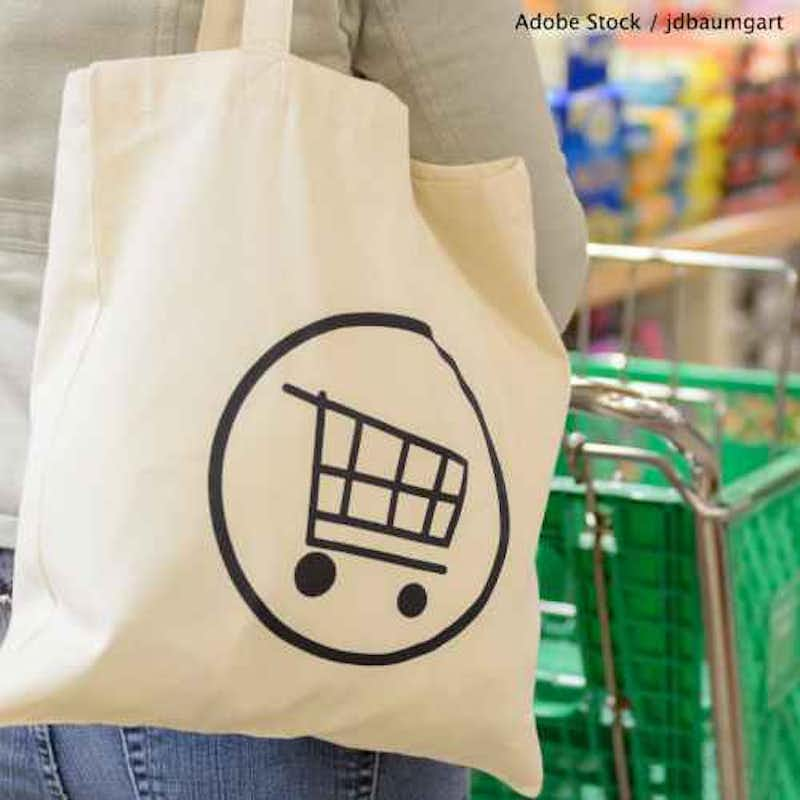Plastic Bags Are Ruining Our Planet
14,588 signatures toward our 30,000 Goal
Sponsor: The Rainforest Site
Tell the EPA to draft and advocate for legislation that would ban plastic grocery bags in the USA.

They are as ubiquitous as they are deadly. Plastic bags are in grocery stores across the United States, helping shoppers carry their goods to car and home with ease.
But what is the real cost of a few minutes of carrying convenience?
The resources and effort that goes into producing plastic grocery bags is enormous. It's estimated that U.S. retailers spend $4 billion a year on disposable bags which in turn inflates the cost of goods. According to the Citizens' Campaign for the Environment, it takes 2.2 billion pounds of fossil fuels and 3.9 billion gallons of fresh water to produce the 100 billion plastic bags the U.S. consumes each year, the manufacturing process of which results a billion pounds of solid waste and 2.7 million tons of CO2 per year. The bags are made from crude oil and natural gas, both of which are dirty, nonrenewable energy sources.
Plastic bags harm animals on land, air, and sea. Animals often mistake them for food and upon consumption, the bags block air and/or digestive passages causing death. In fact, 267 species of marine life are negatively impacted by plastic pollution, and it's believed that every square mile of ocean has about 46,000 pieces of plastic floating in it.
Around the world, 20 countries have already implemented plastic bag legislation. In the United States, 148 cities have some form of plastic bag legislation, 5 cities have a plastic bag fee, and DC taxes plastic bags. And contrary to what the plastics industry may say, in cities and nations that have enacted plastic bag bans, there has been no proof linking the legislation to negatively impacting the grocery business.
Clearly, the benefits to regulating plastic grocery bags to the annals of history has many benefits for both people and the planet. Please urge the EPA to draft and advocate for legislation that would ban plastic grocery bags in the USA.
The Petition:
To the Secretary of the EPA:
Plastic grocery bags are destroying our ecosystem and animal life all for a few moments of convenience to carry purchases from store to home. As concerned citizens, we are writing to you to ask you to step in.
Please draft and advocate for legislation that would ban plastic grocery bags in the USA.
The resources and effort that goes into producing plastic grocery bags is enormous. It's estimated that U.S. retailers spend $4 billion a year on disposable bags which in turn inflates the cost of goods. According to the Citizens' Campaign for the Environment, it takes 2.2 billion pounds of fossil fuels and 3.9 billion gallons of fresh water to produce the 100 billion plastic bags the U.S. consumes each year, the manufacturing process of which results a billion pounds of solid waste and 2.7 million tons of CO2 per year. The bags are made from crude oil and natural gas, both of which are dirty, nonrenewable energy sources.
Plastic bags harm animals on land, air, and sea. Animals often mistake them for food and upon consumption, block air and/or digestive passages causing death. In fact, 267 species of marine life are negatively impacted by plastic pollution, and it's believed that every square mile of ocean has about 46,000 pieces of plastic floating in it.
Around the world, 20 countries have already implemented plastic bag legislation. In the United States, 148 cities have some form of plastic bag legislation, 5 cities have a plastic bag fee, and DC taxes plastic bags. And contrary to what the plastics industry may say, in cities and nations that have enacted plastic bag bans, there has been no proof linking the legislation to negatively impacting the grocery business.
Clearly, the benefits to regulating plastic grocery bags to the annals of history has many benefits for both people and the planet. Please do your part to end the dangerous ubiquity of plastic grocery bags!
Sincerely,